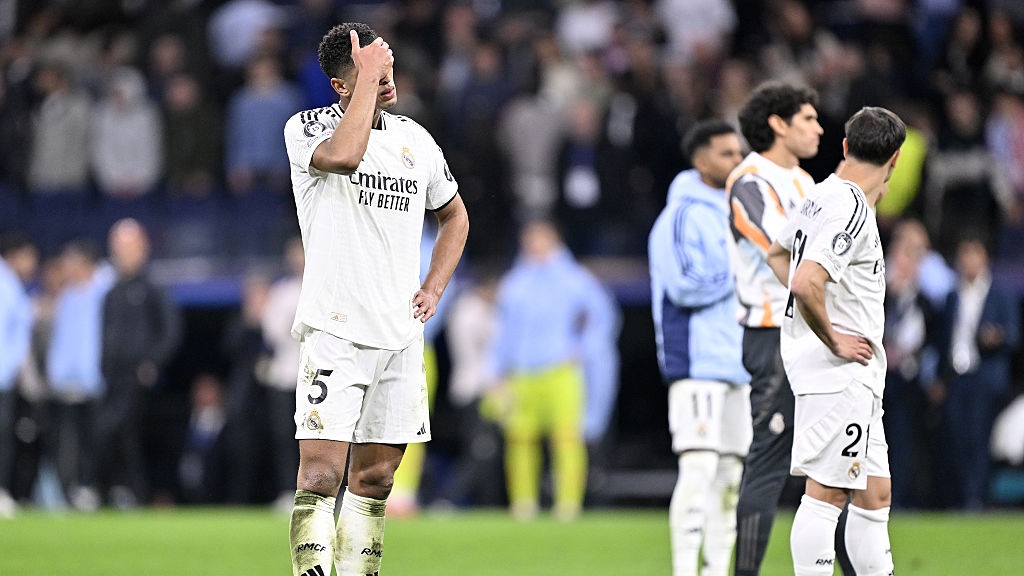Why Arsenal are so easy to beat (and it's not about their defence)
The Gunners are shipping too many goals - but the main problem is not the defence, says Michael Cox...
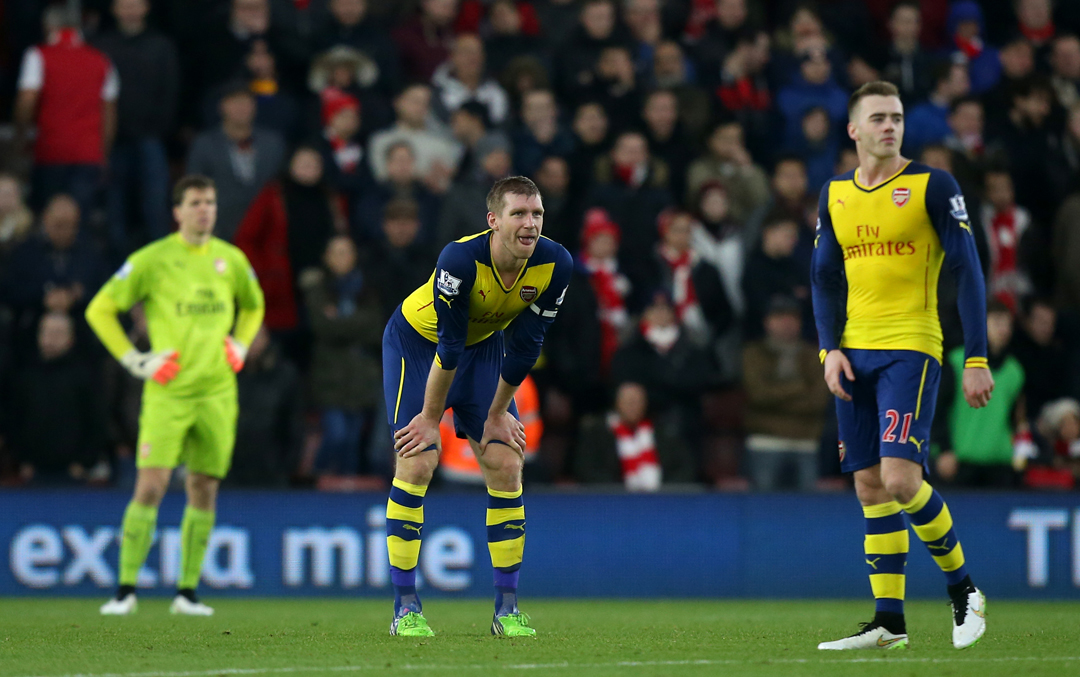
Not for the first time, Arsenal’s problem this season is conceding too many goals. The Gunners boast only the ninth-best defensive record in the division, having shipped more goals than Stoke and Aston Villa.
Going forward, there are few problems – Arsenal have scored the third-most goals. But a leaky defence has cost them too often this season, with four 2-2 draws (Everton, Manchester City, Hull, Liverpool) and a 3-2 defeat at Stoke particularly frustrating in this respect.
No one is entirely spared of blame. Goalkeeper Wojciech Szczesny made a couple of mistakes in the 2-0 defeat to Southampton on New Year’s Day, while the defence has rarely looked settled. But equally important is the protection from ahead, and this is arguably Arsenal’s most pressing problem.
An obvious example was the 2-2 draw to Liverpool shortly before Christmas. This was a peculiar game: Arsenal were entirely dominated throughout, and yet were ahead going into stoppage-time. They continually had problems coping with Liverpool’s unusual 3-4-2-1 system, and in particular couldn’t deal with Adam Lallana and Coutinho drifting inside into space between the lines.
Mathieu Flamini, Arsenal’s holding midfielder in the 4-3-3 system, was overworked and fortunate not to be dismissed following two fouls on Liverpool’s playmakers.
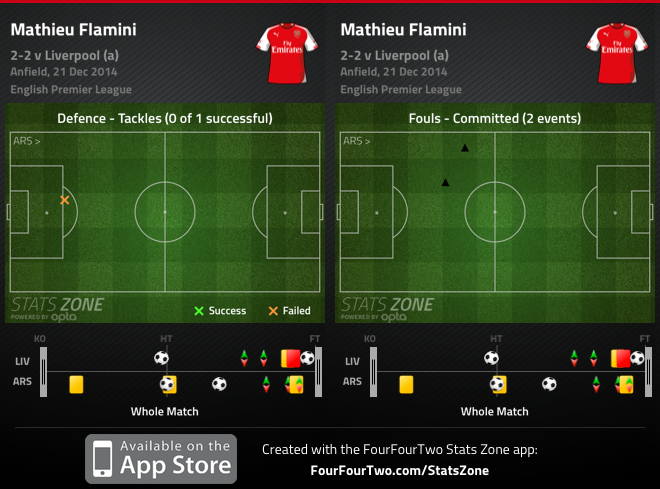
While many have concentrated on Arsenal’s defence being broken up regularly, arguably a bigger problem is the lack of consistency deep in midfield. Arsenal previously depended upon the cool, composed club captain Mikel Arteta in that role, and while Flamini is an experienced deputy, he’s an entirely different type of defensive midfielder.
Arteta positions himself intelligently and stops the danger with a clever interception, or by showing his opponent away from goal. Flamini is more of a tough tackler, who sometimes dives in having scampered across the pitch quickly. The difference is considerable, and it hasn’t helped Arsenal’s cohesion.
Get FourFourTwo Newsletter
The best features, fun and footballing quizzes, straight to your inbox every week.
Flamini has also been unavailable recently, so for the trip to Southampton, Arsenal lined up with Francis Coquelin and Calum Chambers as their defensive midfield duo. Coquelin feistily prowled the midfield zone putting in crunching tackles, while Chambers played a more reserved role on his first senior start in that position.
The combination functioned reasonably effectively – Southampton rarely found space between the lines – yet you expect something more established from a side like Arsenal.
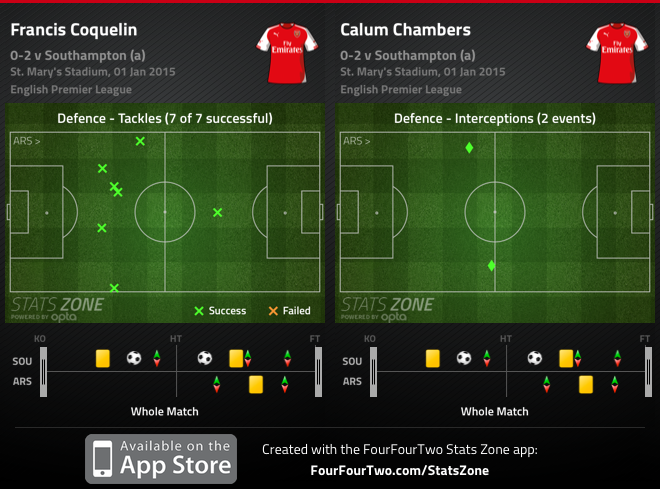
In truth, Arteta’s excellent performances have been hugely underestimated over the past couple of seasons. The Spaniard was signed for a different role, a passer who played slightly in advance of Alex Song, but has adjusted well to the deeper position.
Questions were asked about his ball-winning skills last season, but Arteta was often exposed by Aaron Ramsey’s forward runs. The Welshman’s incredible goal return meant he was entirely within his rights to play such an attacking game, but Arteta’s task was huge. He generally coped very well, and Flamini’s troubles against Liverpool indicate how others can really struggle when isolated in front of the defence.
The most obvious example of Arteta’s calming influence was the 3-3 home draw with Anderlecht. Arsenal were 3-0 up until Arteta picked up an injury; they conceded one goal after Arteta signalled to the bench he was hurt, but before his actual substitution – Flamini came on – and then shipped another two goals to drop two points.
At his best, Arteta is the perfect holding midfielder for Arsenal – a classy, technical player with great tactical intelligence. He’s a natural at covering for team-mates when they’re drawn out of position, he communicates well with the defenders to minimise the space between the lines, and he’s a reliable tackler without being an old-school hardman.
His performance on the opening day against Crystal Palace was particularly interesting, not simply because he won the ball regularly, but because he won the ball in advanced positions.
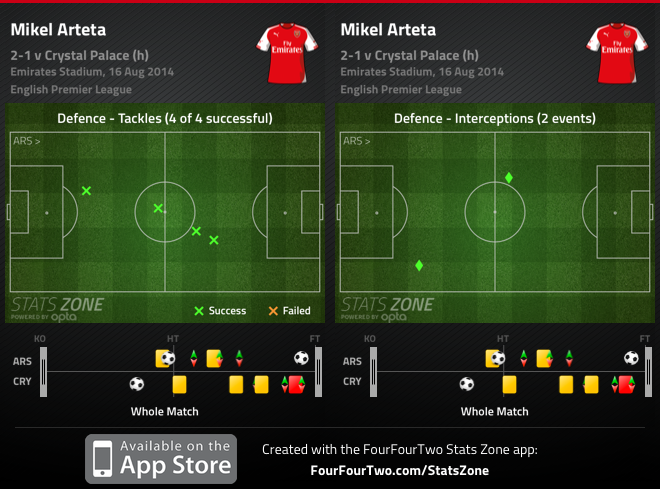
Arsenal are no stranger to injury problems, but often they have dependable back-ups. Danny Welbeck can provide what Theo Walcott does; Santi Cazorla has stepped up in Mesut Ozil’s absence.
Arteta has no obvious replacement, however. Flamini and Coquelin are more reactive, Chambers isn’t accustomed to playing that position, while Ramsey and Jack Wilshere are more attacking players, and out injured anyway. Arteta’s return – not expected for a couple of weeks – can't come soon enough for Arsenal.
Arsenal vs Stoke LIVE ANALYSIS with Stats Zone
